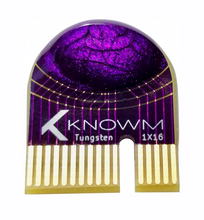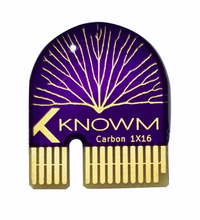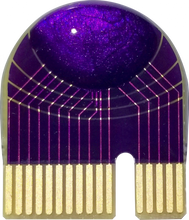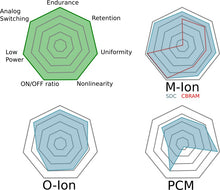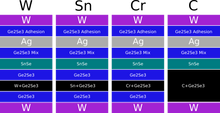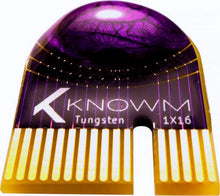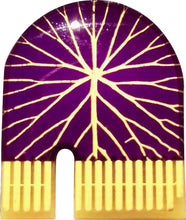
Sixteen Self-Directed-Channel (SDC) memristors with dopant (W, C, Cr, Sn) in a 1X16 linear array configuration with common anode. Packaged in encapsulated edge-board. Can be used in Memristor Discovery or with our PCI-E 36 Breakout Board.
For more information about the device properties and precautions to take while working with our memristors download the Knowm Memristors Data Sheet.
For more information please visit our sister site: knowm.org/memristors
The first time a device is operated after fabrication the self-directed channel is formed during application of a positive potential to the top electrode. The potential required for this operation is typically the same as required during normal device operation. This first operation generates Sn ions from the SnSe layer and forces them into the ‘active’ Ge2Se3 layer, where they undergo a chemical reaction. During this reaction, the glass network is distorted to provide conductive channels for the movement of Ag+ during device operation. The resistance is tunable in the lower and higher directions by movement of Ag into or away from these channels through application of either a positive or negative potential, respectively, across the device. Knowm memristors are Ag+ ion SDC memristor where the active layer has been doped to enhance and optimize the memristors properties.
| Element | Description |
| W/Tungsten | Analog state retention with modest/fast switching response. |
| C/Carbon | Reduced analog state retention. Very low switching energy. Fastest switching response. |
| Sn/Tin | Analog state retention. Medium switching response. |
| Cr/Chromium | Analog state retention. Highest thresholds. Slowest switching response. |









